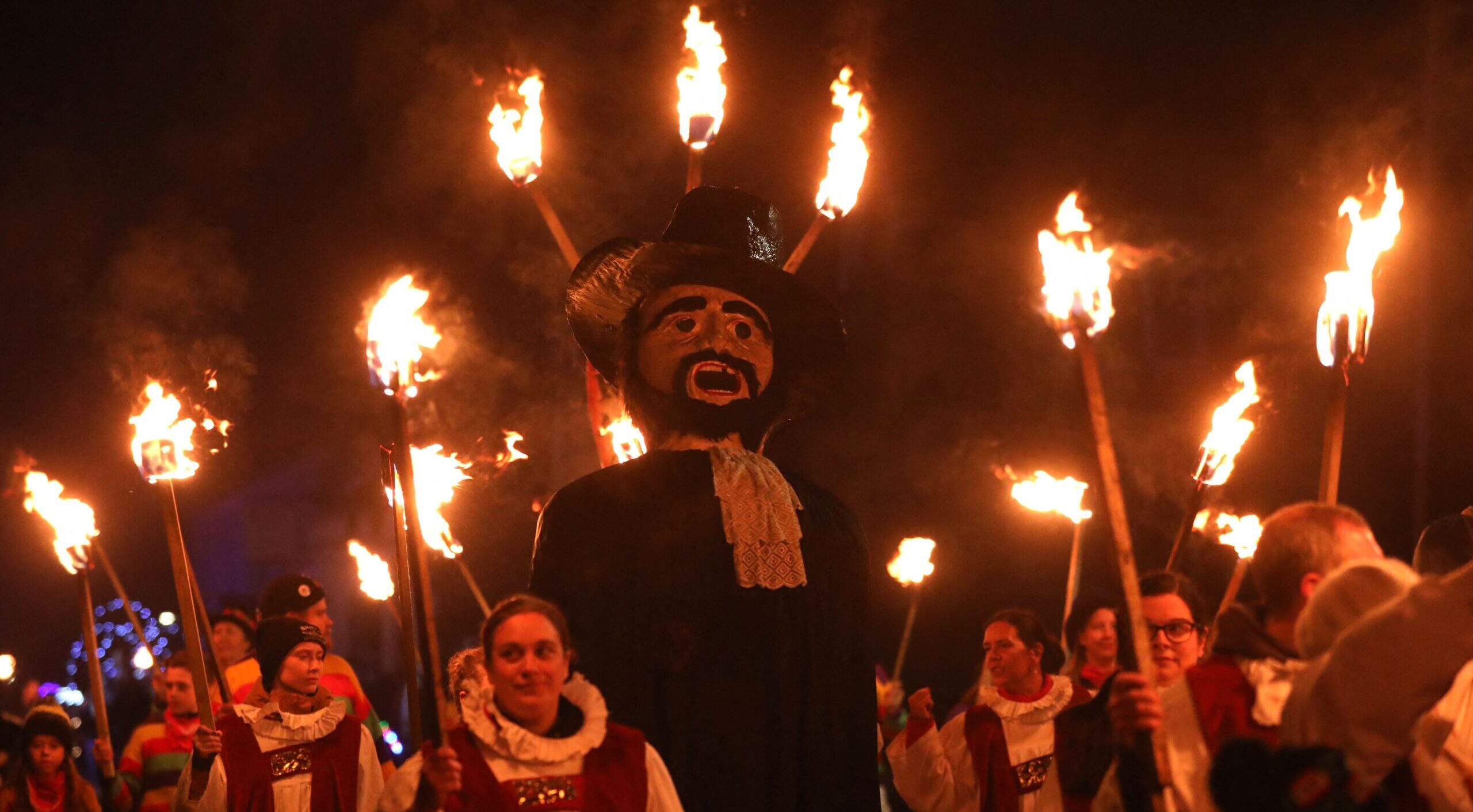As Eric Hobsbawm so correctly and acutely observed, much of the tradition we take for granted in Britain, most of the pomp and ceremony and circumstance of our cultural existence, is invented. Far from a harmless accumulation of pageantry, even the props and stilts of our “ancient” monarchy are late-Victorian in provenance, from the codification of the State Opening of Parliament to the national anthem. These standards of public life are ultimately contrivances which have found special resonance, containing all the innate decorum of back-of-the-cupboard baked beans hastily prepared for your finest dinner party.
But, on Guy Fawkes Night this weekend, we have the chance to observe a more poignant process: a tradition that is gradually being dismantled and disinvented. This is a festival that was practically imposed on England, conceived and mandated by royal decree. A year after the 1605 Gunpowder Plot — when, as every schoolboy once knew, an attempt to destroy King and Parliament by Catholic dissidents was foiled by royal agents — the Observance of 5th November Act was passed, drafting an annual public holiday in memory.
However, it soon became a popular favourite, practically an early-modern Burning Man. The Gunpowder Plot was the most vivid example of public fears about a “Catholic conspiracy”, the notion that England was under internal threat from a fifth column of Papists disloyal to the Crown. This transformed the King’s survival into something more like a holy deliverance. Over the course of the 17th century, English Protestantism became gradually more militant and puritanical, and the remnants of Catholicism and even High Anglicanism were persecuted. And Bonfire Night became the red-letter day for this fervour: effigies of Guy Fawkes, the pope and the devil burned by drunken villagers, raving at England’s liberation and cursing the Roman faith.
This wasn’t just any typical English revelry, though. As Linda Colley argues in Britons, one of the pillars of our national identity was furious, fanatical anti-Catholicism, our island nothing short of a beleaguered redoubt for Protestantism on the edge of absolutist Europe. After the defenestration of the Catholic James II in the 1688 Glorious Revolution, this national religion became bound with political constitution. Guy Fawkes Night was the brightest popular celebration of this new settlement.
Over the Victorian period the holiday endured, even if its anti-Catholicism was gradually replaced by a sense of constitutional defiance against the villainous Guy, who burned solo from this point onwards. And even if over the 20th century it was increasingly domesticated — “penny for the Guy”, home-launched fireworks — it was still a popular occasion.
Yet it was already becoming subject to nominal dilution — Guy Fawkes Night becoming Bonfire Night becoming Firework Night — to the point where it is doubtful if most of those watching know what is being burned or why. Late October and early November is taken more as a firework fortnight now. And children don’t pram garish effigies about town for small change anymore. They’ve long been lured away by an alternative and coterminous festival of fructose and face paint.
We are forgetting Guy Fawkes Night, and only really take notice of it when it races to update itself. Take the Edenbridge Bonfire: having put the final seal on the careers of Katie Price, Sepp Blatter, Boris Johnson and Liz Truss, this year the Kentish townlet will be burning Sadiq Khan in protest at his Ulez scheme. The effigy in question is a masterpiece, a CCTV-headed automaton, stickered with traffic signs. But this Edenbridge tradition itself is only 20 years old, even if it is always gratifying to see the money-grabber or country-wrecker of the year go up in flames. Like the statues of anonymous generals in London’s tree-muffled squares, it’s another reminder of our addiction to the panting present, and our gradual amnesia to the events that once made up a collective, national past.










Join the discussion
Join like minded readers that support our journalism by becoming a paid subscriber
To join the discussion in the comments, become a paid subscriber.
Join like minded readers that support our journalism, read unlimited articles and enjoy other subscriber-only benefits.
Subscribe